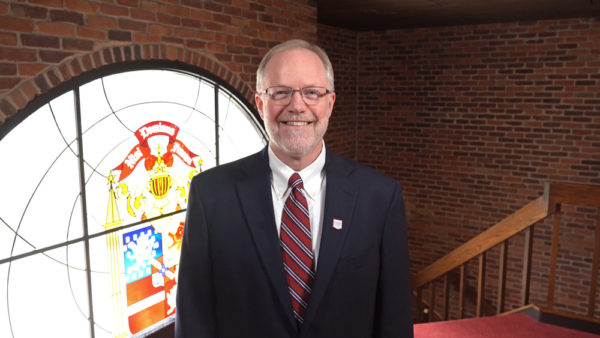 I learn from the questions prospective students and their parents ask. These questions address personal interests and detail individual concerns. They also reveal hope and ambition, optimism and uncertainty and some degree of fear and doubt. Listening to them reminds me that no two Central College educations are identical. Broad patterns emerge, but students draw on the resources we provide in varying ways. They carefully curate their opportunities to fit their own needs and interests with the advice of faculty and staff. A Central education is much like a fingerprint.
I learn from the questions prospective students and their parents ask. These questions address personal interests and detail individual concerns. They also reveal hope and ambition, optimism and uncertainty and some degree of fear and doubt. Listening to them reminds me that no two Central College educations are identical. Broad patterns emerge, but students draw on the resources we provide in varying ways. They carefully curate their opportunities to fit their own needs and interests with the advice of faculty and staff. A Central education is much like a fingerprint.
During a recent discussion with prospective parents I was asked, “How do you teach students to work in teams?”
“We encourage them to play in music ensembles, perform in theatre productions, participate on athletics teams and volunteer for student organizations,” I responded. It took some by surprise. I suppose many in the room expected I would refer to a course or a curriculum. But some things are best learned through life experience.
I also was asked how we teach negotiation, mediation and conflict resolution. “We give them roommates,” I said. People laughed, but also realized that everyday life has a lot to teach us if we intentionally incorporate it into our learning.
Everything belongs in the educational journey of students at Central College. Many alumni say co-curricular activities have a profound impact on their personal and professional journey. Stories abound. Planning an event with the Campus Activities Board teaches organizational skills. Coming back after a tough loss on the court teaches resilience. Mastering a difficult piece of music teaches dedication, persistence and high standards.
Prevailing winds in education seek to reduce the rich relational experience of learning to a series of test-taking, box-checking transactions. We deceive students when we tell them they can complete much of college when they are in high school. Most are not developmentally ready. Higher learning is an unfolding process. Brain development responds to increasing complexity. Emotional maturity flows from experiencing increasing ambiguity. Intellectual ability grows through repeated encounters with cognitive dissonance. This occurs in classrooms, studios and labs but also in residence halls, and via internships and service-learning opportunities.
Our alumni achieve because they draw on their whole Central College experience, in which everything belongs to learning.












To encourage serious, intellectual discourse on Civitas, please include your first and last name when commenting. Anonymous comments will be removed.
Duane Willhite '79
|
9:23 am on July 5, 2019
Love your phrase “everything belongs to learning.” As an educator entering my 39th year there have been so many efforts to hold schools accountable and focus on the standards, that we forget the relational learning that students need. In our high schools, middle schools and all the way down to our kindergartens we need to allow time and enlightenment to foster the practice of relationships. So many of our students enter the system ill-prepared for the group interactions they must navigate to be successful. The learning in those soft skills has to happen early so that the deeper learning can be mastered as the brain fully develops and matures. We need to let the “emotional maturity flow from experiencing ambiguity”